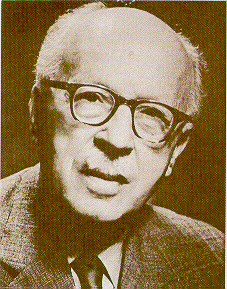Marie Sklodowska Curie (November 7, 1867 – July 4, 1934)
Don't start thinking I dislike Croatian scientists, it's just Marie's field of studies that I'm attracted to. So, Marie Curie is a physicist and chemist with both Polish and French citizenship.She was born in Warsaw but studied in France, where she got all the diplomas and got her scientific work done.
Famous for discovery of two elements : Polonium and Radium. As a pioneer in the field of radioactivity she was the first person ever honored with two Nobel prizes :-) ! Before her death, she founded the Curie Institute in Warsaw and Paris.
Marie Curie died from aplastic anemia which is certainly contracted from exposure to radiation.
I would say that the results of Curie's work were epoch making!
In medicine, the radioactivity of Radium appeared to offer a means by which cancer could be successfully attacked ! Not to forget the immense meaning of sources of the radioactivity with which Rutherford probed the structure of the atom.
Curie was just ahead of her time, so emancipated and independent !
PS. Hope u like her as I am.
Jun 3, 2009
Jun 2, 2009
Lavoslav Ružička - Croatian scientist
 Lavoslav Ružička (13 September 1887 – 26 September 1976) was a Croatian scientist, winner of the 1939 Nobel Prize in Chemistry. He received eight doctorates in science, medicine, and law; seven prizes and medals; and twenty-four honorary memberships in chemical, biochemical, and other scientific societies.
Lavoslav Ružička (13 September 1887 – 26 September 1976) was a Croatian scientist, winner of the 1939 Nobel Prize in Chemistry. He received eight doctorates in science, medicine, and law; seven prizes and medals; and twenty-four honorary memberships in chemical, biochemical, and other scientific societies. Ružička was born to Stjepan Ružička and Ljubica Severin in Vukovar. He chose to attend the High Technical School in Karlsruhe in Germany. He was a good student in areas he liked and that he thought would be necessary and beneficial in his future, which was organic chemistry.
Later he went to Zurich and was asistent of prof. Hermann Staudinger. He investigated the ingredients of the Dalmatian insect powder, a highly esteemed insecticide. In this way he was interesting to parfume industry and he made a contract with Chuit & Naef Company in Geneva. In one stage of his career he left Zurich and went to the Netherlands. Back to Zurich he became a professor of organic chemistry and started the most brilliant period of his professional career. He widened the area of his research, adding to it the chemistry of higher terpenes and steroids. After the successful synthesis of sex hormones, his laboratory became the world center of organic chemistry.
In 1939, he won the Nobel prize for chemistry with Adolf Butenandt.
Ružička retired in 1957, turning over the running of the laboratory to his assistant and future Nobel laureate Vladimir Prelog. He died in Mammern, Switzerland, a village on Lake Constance.
Subscribe to:
Posts (Atom)